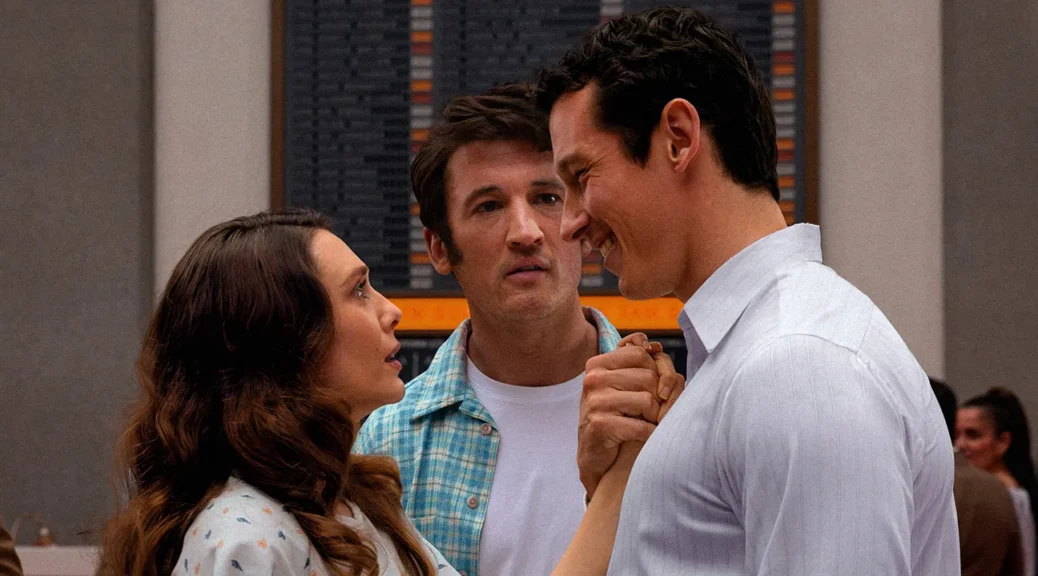Eternity
by George Wolf
Early on, Eternity may feel like a Hallmark Channel movie that made it to the big leagues. But thanks to a great cast and some easygoing humor, the whiffs of schmaltzy contrivance at its core are gone before that first commercial would have kicked in.
Elizabeth Olsen and Miles Teller play Joan and Larry. Married for 65 years, they drag their bickering selves to a family gender reveal party where Larry promptly chokes to death.
Once Larry accepts his fate, his helpful Afterlife Coordinator, Anna (Da’Vine Joy Randolph) gives him the scoop. Larry has one week to browse a very theme park-like showroom for all the eternity options available, and then make his choice.
But while he’s mulling, Larry meets Luke (Callum Tuner), who took a job as the showroom bartender rather than make an eternity choice at all.
Why would he do that? Because Luke is Joan’s first husband, who died in the Korean War and has been waiting 67 years for Joan to arrive.
And right on cue, the cancer that Joan and Larry had been hiding from their family sends Joan to her own Afterlife Coordinator, Ryan (John Early), who explains the obvious.
Joan’s Heavenly table only seats two, and she has one week to decide.
Director/co-writer David Freyne starts winning us over early with the Disneyfied weigh station. Various booths offer some well-played sight gags (“Choose Wine World!” “Man Free World Sold Out!”) while Anna and Ryan begin increasingly competitive campaigns for their clients’ futures.
It’s all good, high concept fun, but the three leads make the film a charmer that’s pretty hard to resist. Turner leans into Luke’s reputation as a perfect war hero too handsome even for Joan (I’m sorry, what? That’s Elizabeth Olsen!), while Teller is a perfect goofball trying to compete with Luke’s pristine memory.
And Olsen is the sweet, harried soul at the center, flush with the return of the young love fighting to drown out decades of memories.
In lesser hands, all three of these characters would become ridiculous posers, but the terrific ensemble and a deceptively smart script end up working wonders. Yes, you can probably guess how some of this plays out, but even that can’t spoil the film’s winning flight of fantasy.
Character-based with bits of nifty visual flair, Eternity delivers some warm fuzzies perfect for the season, even without any time spent in an afterlife Holiday World.
Maybe they don’t want to give Hallmark any ideas.








